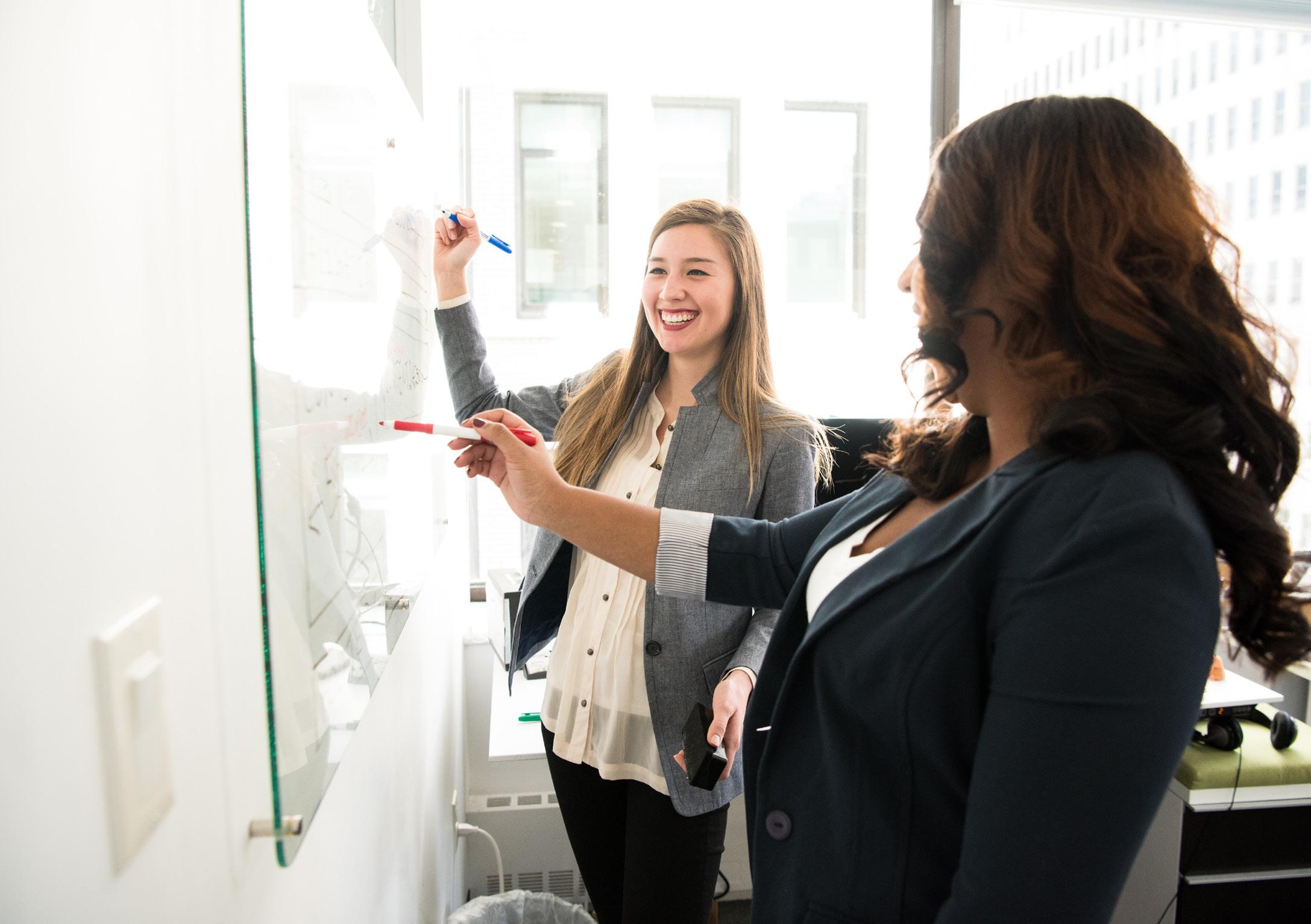
9 minute read
Diversity & Inclusion: Sense of Belonging
In Aotearoa, we have long understood the importance of place. Many of us feel a powerful sense of belonging to places and people and draw strength from those connections. Zoe Brownlie and Kaisa Wilson take a practical look at how we can incorporate this sense of belonging into our organisations.
Growing up, many of us can remember singing about turangawaewae at school, and being told about our connection to whenua and the importance of being part of a community. We can remember how family gatherings gave us a sense of belonging and a connection to whānau, and we knew our place and what our role was in all of it. In the past, in Western society, we largely took belonging for granted, but we now know how important a sense of belonging is to human beings, regardless of context. Studies have shown when we don’t feel we belong, we don’t function at the same level as when we feel we do belong. Thinking, creativity, problemsolving and impulse control, among other functions, all suffer. These are critically important skills in most workplaces, yet many of us don’t have a sense of belonging where we work, despite spending a large portion of our lives there.
On a practical level, studies have shown that a sense of belonging at work has a significant impact on our wellbeing, as well as our productivity, ability to innovate, how long we stay at an organisation, how we speak about the organisation to others, and how many sick days we take. So if we don’t feel we belong, it’s not good for us, and it’s not good for our employer.
Belonging goes a step further than diversity and inclusion and focuses on all people not only sharing their authentic selves but being valued for what they bring to their workplace.
Research shows that organisations with high levels of belonging have a 56 per cent increase in job performance, a 50 per cent drop in turnover risk and a 75 per cent reduction in sick days (www. betterup.com). So the business case for belonging is solid, but there’s no such thing as a one-sizefits-all option to make it happen.
Although many have tried, importing generic solutions for belonging from other countries has never worked well in Aotearoa. Our unique culture, worldview and values must form the basis of any workplace solution for it to be effective. When we transpose a US, European or Australian initiative into the New Zealand context, we miss an opportunity to have a truly meaningful impact on our organisations and people. Psychologists have recently come to understand how critical context is to the efficacy of what we do. Psychological assessments and interventions, for example, are always ‘standardised’ to the country in which they are being used, because differences in culture and values can render a useful tool ineffective when applied in another cultural context. The same is true for organisational belonging initiatives.
We are lucky that, in Aotearoa, we have indigenous models and ways of working that fit so well with fostering belonging at work for all. Well-known Māori concepts like whanaungatanga (relationship building), wairuatanga (identity or spirituality of people and places), kotahitanga (unity of purpose), mahi tahi (working together) and manaakitanga (hospitality) can all be incorporated to foster belonging for everyone, no matter how they identify. The most robust approaches combine the best of science and indigenous knowledge endemic to the location in which you are operating, which should then be tailored to fit your particular organisation. In Aotearoa, that means meaningfully combining indigenous concepts (not in a tokenistic way, because it will be harmful and not work) with evidenceled approaches. Only then will you realise the potential of belonging and its associated benefits in your organisation.
1. Ask your people
Ask your people, and ask them again and again and again. The most successful organisations are those that frequently obtain feedback from their people in meaningful ways and take action based on what they say. Annual engagement surveys can give you some data, but organisations are realising they need more regular and specific feedback to really make a difference. Providing space for honest feedback, getting it often and taking action will make people feel heard, valued and that they belong.
You could try: pulse checks every two months focused on a different topic each time, and clearly communicating to all your people what the results are, and how they are going to be actioned. Solutions exist that can gather data as frequently as daily (eg, the Chnnl app). Don’t try: expecting all people to give you honest feedback just because you have a good relationship. Always ask for some of it in an anonymous way.

2. Create a shared vision
If people know what the goals of the organisation are and that they play a part in reaching them, no matter how small, this has a significant impact on belonging. And better still, if it’s possible, then involve everyone in creating it. The more you listen and create together, the more people feel they matter.
You could try: using co-design methodology to create a vision together, using non-hierarchical visuals to show how everyone in the organisation contributes to the vision, regularly referring to your vision and asking your people about it, using external facilitators to run any sessions on this, and finding out how your vision relates to peoples’ personal values.
Don’t try: creating a shared vision but then never talking about it again, creating a vision on your own or only involving the leadership team, or using any communication that suggests some play a more significant part in reaching your goals than others.
3. Enable social bonds
Although sometimes seen as a waste of time, allocating time for people to bond is so beneficial. Friday night drinks are common, but this excludes a whole lot of people who can’t or choose not to attend. Implement something regularly during work hours that all people have to attend. Through the COVID-19 lockdown, a lot of organisations had weekly Zoom coffees, where they’d catch up about how everyone was coping. Continue with these, and you will see benefits.
You could try: organising pōwhiri when new people join your organisation and spending time on whanaungatanga, Friday morning team coffees, random buddy morning teas, dress up or down days, using the Emotional Culture Deck or Heartwork cards (cards purchased online that seek to create high-empathy, high-performing organisational cultures), everyone taking turns being on the social committee, and setting up a Slack channel just for non-work content. Don’t try: expecting people to attend anything outside of working hours, forcing people to be social (think ‘The Office’!).
4. Build trusting relationships
If people trust those they work with, especially those who lead them, belonging skyrockets. And if they don’t have this trust, it can be disastrous. Make sure this is focused on, because it has many other benefits as well as belonging.
You could try: putting aside regular time for whanaungatanga and never rushing it, implementing reciprocal mentoring, showing vulnerability from the top, promoting wellbeing and people being honest about how they are.
Don’t try: expecting people to be able to lead others just because it’s the next step in their career. People need training and the right personality. Make sure you have clear pathways for reporting if relationships aren’t going smoothly.
5. Be intentional about inclusion
Saying you’re an inclusive organisation because you have women or Māori, for example, in your leadership team is not good enough anymore. Inclusion needs to be implemented in all parts of a business.
You could try: prioritising getting onboarding right, setting timebound targets to include people in leadership positions, making space for all people to share stories about feeling included, sharing messages about inclusion from the chief executive and leadership team, having a ‘nearly always say yes’ strategy to employee requests.
Don’t try: focusing on inclusion in recruitment more than retention, or running any sort of inclusion workshops without the right expertise.
6. Create a backlash strategy
Some people will undoubtedly feel threatened by any sort of belonging programme and think it’ll mean they’ll lose out. In order not to lose traction, you need to have a strategy in place for dealing with these people, and bear in mind it might be people in leadership positions. Backlash can be hostility to change efforts, attempts to discredit the evidence, complaints about the unfairness of actions and strategies put in place, ignoring or trivialising complaints, justifying existing workplace inequalities, refusing to participate or being disruptive in training or consultation sessions.

You could try: being transparent about your plan and sharing with everyone that you have a backlash strategy. Ensure the leadership team is clear about why the organisation is taking the action it is so that when resistance occurs, everyone can respond with confidence.
Don’t try: putting up with this behaviour because people have been with the organisation for a long time or are in a senior position. Offer opportunities to learn and understand, but decide what behaviour is unacceptable and address it swiftly and seriously. So there you have it. Creating a culture of belonging is good for business, good for people and good for the world, but it needs to reflect Aotearoa and the specifics of your organisation. If you do it right, it’s worth its weight in gold.
“Where my home is, where I stand, where my home is, turangawaewae.”
Zoe Brownlie and Dr Kaisa Wilson are co-directors of AllHuman, a New Zealand based consultancy and community. Zoe has a background in wellbeing, diversity and inclusion, equity and social change. She has worked with organisations to improve culture, policies and processes, and is passionate about using co-design and indigenous knowledge to create authentic change. Kaisa has a doctorate in gender, identity and belonging, and has worked with a range of organisations to improve performance and resolve issues related to people and culture. To get in touch, please contact them on hello@allhuman.co.nz or find out more at www.allhuman.co.nz.
Got a Team of 5 or More? Check out our organisational membership package

• Membership transferable to another employee
• All staff get HRNZ Member discounts for HR101 and HR Foundations courses ($200-$400 pp).
• All staff get access to the HRNZ Magazine online
• Discounted membership fee for group purchase
For more information please contact Steve Mooney (Membership Manager) Steve.Mooney@hrnz.org.nz










